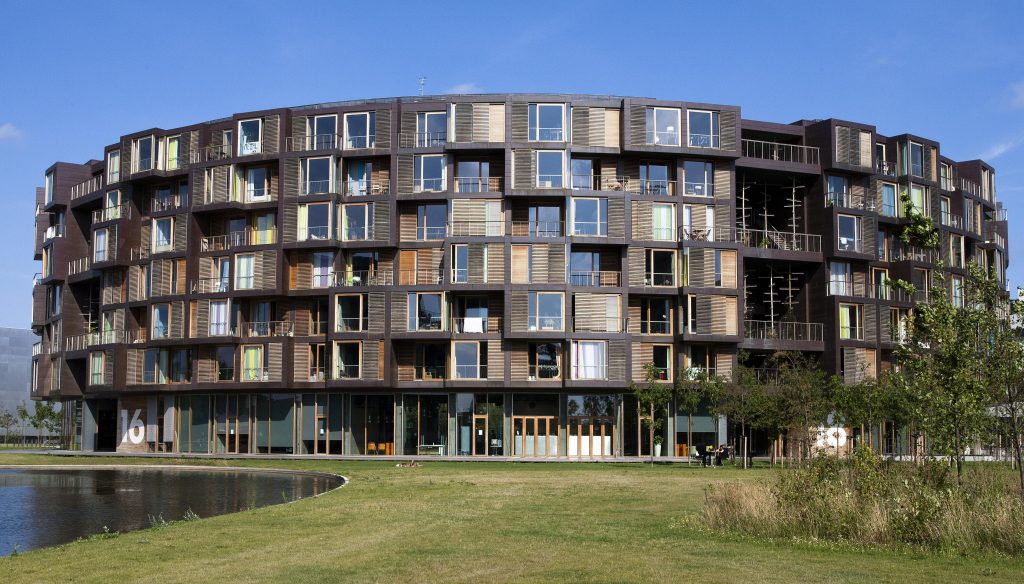
丹麦哥本哈根大学发酵生态学博士后职位
Postdoc In Fermentation Ecology In The Center For Evolutionary Hologenomics
Copenhagen University
Description
We are looking for a highly motivated and dynamic researcher for a 2-year position (with the possibility of extension) to commence in the fall of 2021. The position includes both research and public engagement related to understanding the ecological relationship between humans and the organisms humans employ in fermentation, be it of beer, wine, kimchi, fish paste or sourdough bread.
Information on the department can be found at: https: // ceh.ku.dk/
Our research The research group in the Center of Evolutionary Hologenomics, a new center focused on understanding the story of life from the perspective both of animals and the microbe species with which they interact. The hologenome is the collective that includes the genes of an animal and the genes of its microbes. The human hologenome includes human genes and their functions, body microbe genes and their functions AND fermented food microbe genes and their functions.1 The Center of Evolutionary Hologenomics is part of the broader Globe Institute which considers diverse phenomena from genes to ecosystems to star systems.
Your job Over two years, and potentially longer, the postdoc would work with a large, multi-country, multi-institution team to lead efforts to understand the contribution of fermentation to pre-agricultural and early agricultural societies. This work will be done in the context of a framework in which fermentation microorganisms are viewed to be part of the “extended hologenome” of the host. The project will include a variety of components, some or all of which the postdoc can lead, depending on interests, skills, and time. 1) The postdoc can work with ecological modelers, archaeologists and microbiologists to consider the extent to which fermentation in general and grain in particular may have altered the ability of groups of humans to accumulate wealth. 2) The postdoc can collaborate on or lead (depending on their background) a lab-based project to test the extent to which early fermented beverages could have controlled fecal-oral pathogens in early cities (for example, Mesopotamia) or more recently (Cholera outbreaks in London). 3) The postdoc will also have the potential to work with bread archaeologists, bakers, and food scientists to compare the nutrition of different grain-based foods, including gruels, breads and various types of beers given a range of potential scenarios with regard to the details of preparation. 4) Finally, the postdoc will help with on the Danish components of an ongoing public engagement project called “fermentology.” This engagement work will occur in collaboration with House of Nature at the Danish Natural History Museum.
This work is part of a broader effort at the Center for Evolutionary Hologenomics to understand the role that the use of microbes to ferment foods by humans has played in extending the hologenome of humans and, with it, the functions of the hologenome. More broadly, the center considers the big story of all of life from the hologenomic perspective and using the tools of hologenomics.
Faculty mentors This project will be highly collaborative and each subproject will include different collaborators. However, there will be four primary mentors, Rob Dunn, an ecologist focused on human biodiversity, Jon Shik,2 an ecologist focused on nutrition, Ainara Sistiaga Gutiérrez, a paleoanthropologist with deep interests in ancient diets3, and Anders Tøttrup, the director of the House of Nature at the Danish Natural History Museum. Additional collaborators will include historians, chefs-researchers, primatologists, phylogeneticists and population modelers.
Profile We are looking for a highly motivated and enthusiastic scientist with the following competencies and experience:
Essential experience and skills:
You have a PhD in Ecology, Evolutionary Biology, Microbiology or related fields
You are highly experienced in working with teams, ideally diverse interdisciplinary teams
You show evidence of finishing projects
Excellent English skills written and spoken
Desirable experience and skills:
Experience engaging diverse publics in science
You have an active interest in fermentation, ideally with some hands-on experience in fermentation
Experience in metagenomics, phylogenetics, lab based microbiology or ecological modelling are also relevant; the candidate is not expected to have all of these skills, but experience in one or more of them is desirable.
Place of employment The place of employment is in the Center for Evolutionary Hologenomics at the University of Copenhagen. We offer creative and stimulating working conditions in dynamic and international research environment. The project will also involve some extended trips to the United States for research collaboration.
Terms of employment The employment as postdoc is a full time and fixed-term position for 2 years. Starting date is 1 November 2021 or after mutual agreement.
Salary, pension and terms of employment will be in accordance with the agreement between the Danish Ministry of Finance and AC (Danish Confederation of Professional Associations). Currently, the monthly salary starts at 34,899 DKK/ approx. 4,690 Euro (April 2021-level). Depending on qualifications, a supplement may be negotiated. The employer will pay an additional 17.1 % to your pension fund.
Non-Danish and Danish applicants may be eligible for tax reductions, if they hold a PhD degree and have not lived in Denmark the last 10 years.
The position is covered by the “Memorandum on Job Structure for Academic Staff at the Universities” of December 2019.
Questions For further information please contact Prof. Rob Dunn ; robert.dunn@sund.ku.dk
Foreign applicants may find this link useful: www. ism.ku.dk (International Staff Mobility).
Application procedure Your online application must be submitted in English by clicking ‘Apply now’ below. Furthermore your application must include the following documents/attachments – all in PDF format:
1. Motivated letter of application (max. one page).
2. CV incl. education, work/research experience, language skills and other skills relevant for the position.
3. A certified/signed copy of a) PhD certificate and b) Master of Science certificate. If the PhD is not completed, a written statement from the supervisor will do.
4. List of publications.
Application deadline: 22 August 2021, 23.59pm CET













